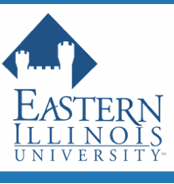Start Date
16-10-2020 10:00 AM
End Date
16-10-2020 10:50 AM
Document Type
Presentation
Abstract
Career development is a life-long, continuous process with many complex factors and interplay. This is also reflected in what makes up the learner of today and the demands of the current pandemic on flexible learning styles and modes of delivery to prepare for success. An eclectic toolbox is needed to meet and adapt to one’s unique strengths, needs, abilities, and preferences via different modes of communication. A purposeful and enhanced focus on experiential learning strategies may be achieved by using pseudo-flipped career training and brain-based learning. Some tenets include emotional intelligence, cognitive behavior therapy, and stages of readiness which may improve students’ attitudes toward career development and generate confidence in performing and modeling career-related tasks. The experiential activities, assignments, and technology utilized for flipping the training are described. Student feedback regarding changes in their attitudes and values toward career development, and confidence in applying career support, is reported per specific virtual examples of personalized instructional methods, activities, and delivery. Join us and learn about our eclectic career toolbox and how it is applied via career peer student perspectives and enhanced virtual experiences (EI + ABCDE + FLIP in a SNAP where one’s at!)
Creative Commons License

This work is licensed under a Creative Commons Attribution-Noncommercial-No Derivative Works 4.0 License.
Incorporating Brain-Based Learning into Virtual Career Support and Delivery
Career development is a life-long, continuous process with many complex factors and interplay. This is also reflected in what makes up the learner of today and the demands of the current pandemic on flexible learning styles and modes of delivery to prepare for success. An eclectic toolbox is needed to meet and adapt to one’s unique strengths, needs, abilities, and preferences via different modes of communication. A purposeful and enhanced focus on experiential learning strategies may be achieved by using pseudo-flipped career training and brain-based learning. Some tenets include emotional intelligence, cognitive behavior therapy, and stages of readiness which may improve students’ attitudes toward career development and generate confidence in performing and modeling career-related tasks. The experiential activities, assignments, and technology utilized for flipping the training are described. Student feedback regarding changes in their attitudes and values toward career development, and confidence in applying career support, is reported per specific virtual examples of personalized instructional methods, activities, and delivery. Join us and learn about our eclectic career toolbox and how it is applied via career peer student perspectives and enhanced virtual experiences (EI + ABCDE + FLIP in a SNAP where one’s at!)





Speaker Information
Angela Evans
Angela Evans is the Assistant Director of the Career Development Center at the University of Illinois Springfield (UIS) and has worked in the not for profit sector and in higher education for nearly twenty years. Her experience includes career development, addictions, community and mental health counseling, programming, and training and supervision. Her professional credentials include: Licensed Clinical Professional Counselor (LCPC), Board Certified-TeleMental Health Provider (BC-TMH), and Certified Alcohol & Drug Counselor (CADC).
Angela is a first-generation college graduate who received her BS in Biology from the University of Illinois Urbana-Champaign and M.A. in Human Services, with a concentration in Child and Family Studies and Doctorate of Public Administration (DPA), with specialization in Organizational Leadership and Management from the University of Illinois Springfield. Her work involves career advising/counseling, assessment, programming, and presenting to diverse audiences. Her research and interests focus on positive psychology, organizational behavior, brain-based learning, psychometric testing, mentoring and development.
Hannah Nicolaisen
Hannah Nicolaisen is a fourth-year student at the University of Illinois Springfield (UIS) where she is pursuing a bachelor’s degree in exercise science. Along with being a career peer student mentor, she is a member of the UIS Volleyball team, a dean’s list scholar and member of the National Society of Leadership and Success. She is originally from Houston, Texas and spent two years in Kansas playing volleyball and studying at Cowley College where she graduated with an Associates of Science degree before transferring to UIS. In Kansas, she earned two-time NJCAA All-American recognitions and was inducted into Phi Theta Kappa academic honor society. Her interests include leadership training and development and she plans to apply to graduate school to further explore leadership, business, and psychology.
Mildred Wallace
Mildred Wallace is a third-year student at the University of Illinois at Springfield in the College of Arts and Sciences where she is pursuing a degree in Medical Laboratory Science (BS) and a minor in Biology. She is the recipient of the Health Professions and Wepner Scholarship, which has allowed her to engage wholly in the natural sciences. In her studies, Mildred is focusing on microbiology, training in laboratories to aid in the diagnosis and treatment of patients in need of urgent care. Her interest in healthcare and biology has been prominent since childhood, where curiosity, ambition, and determination drove much of her passion for the natural sciences. In addition to being a career peer student mentor, Ms. Wallace is a part of the organization Black Women of Excellence, which strives to create a safe place on campus for women of African American descent. Upon completion of her undergraduate studies, she intends to gain experience in medical laboratories and in the future pursue a career as a Pathologist’s Assistant.